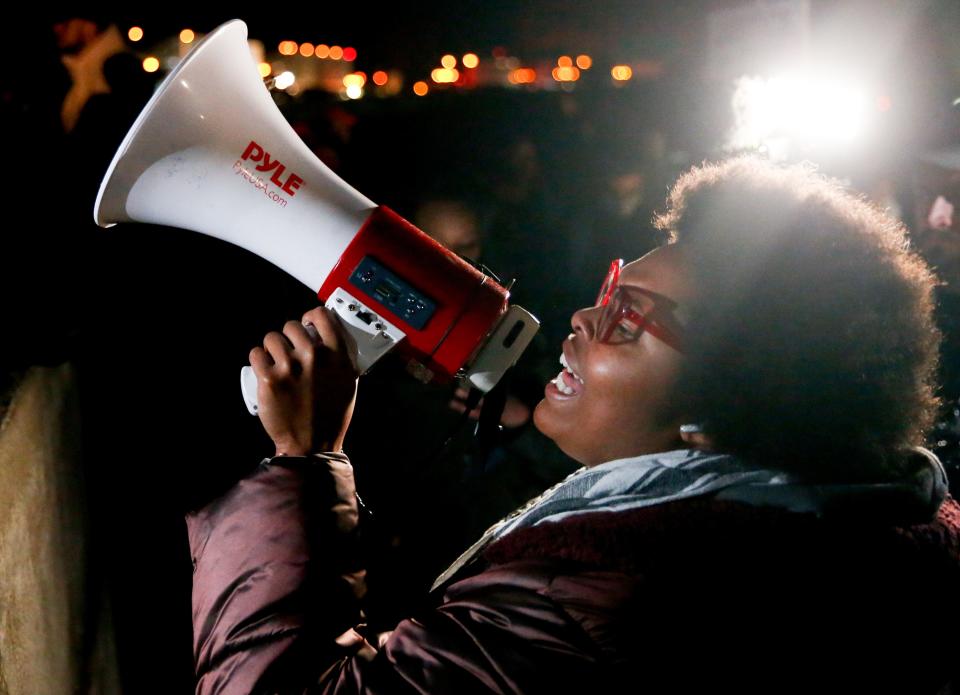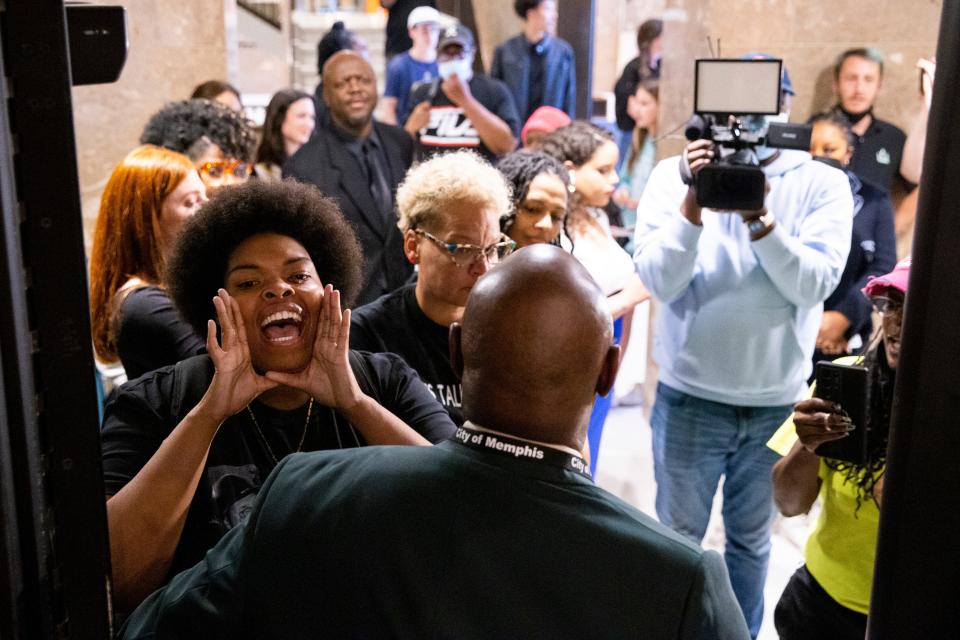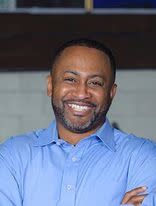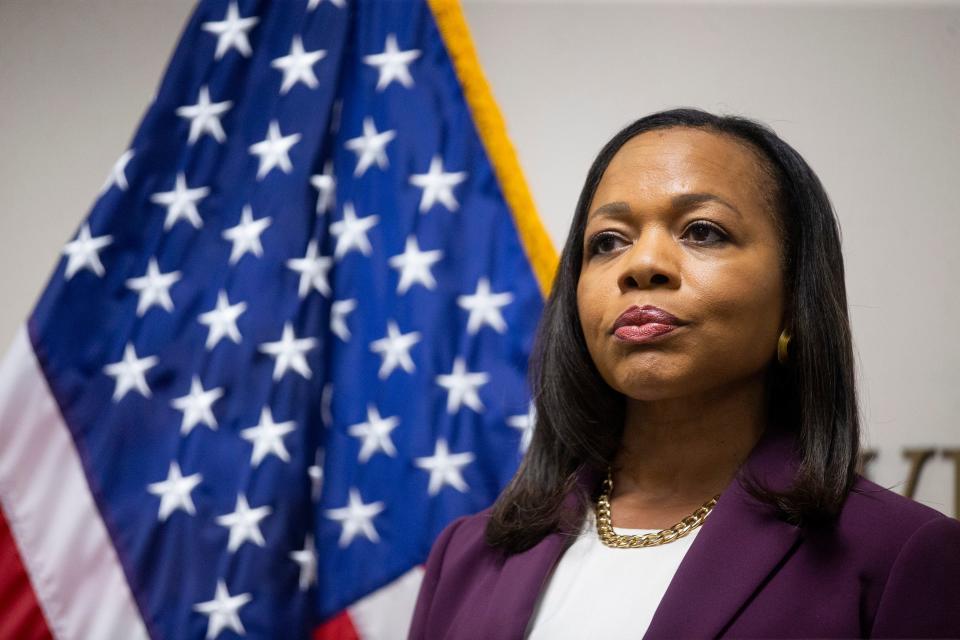'Anxiety, frustration and fear': Has Memphis healed a year after Tyre Nichols' death?
A year after Tyre Nichols was pronounced dead at Saint Francis Hospital, the wounds the community suffered from his ultimately fatal beating on Jan. 7, 2023, by officers with the Memphis Police Department are still open.
Healing that wound, according to the Rev. Earle Fisher of Abyssinian Baptist Church, is something only justice can accomplish.
"The situation with Tyre was a global presentation of an abuse suffered by not just Tyre and his immediate family, but the broader community," Fisher said. "Since it is an abuse, the only way for that healing to begin is through the rendering of justice. There are so many lingering procedures that it's impossible for the community to have healed. You have the trials for the officers still pending, even though one has pleaded guilty."
For Amber Sherman, a community activist who was involved in passing multiple reform ordinances at the city level following Nichols' death, healing has been in a state of flux.

"It's kind of like a boomerang," Sherman said. "It gets a little better here, and then [the pain] comes back again. I think a lot of that has to do with how the police are currently operating. Folks are still being stopped in pretextual stops. People are still getting stopped by unmarked cars. MPD is not following the data transparency ordinance — not providing any of this data the city council was asking for. These very specific things that Memphians have said will make them feel safer aren't happening."
The ordinances not being adhered to has also stunted the healing process in Fisher's eyes.
"You also have [former Memphis] Mayor [Jim] Strickland pouring salt into the wound of the injustice by walking out of office and saying, '[expletive] y'all, I'm not enforcing the ordinances,'" he said. "It's impossible to have healing when there are so many different elements associated with this tragedy that still have not been resolved."
Sherman was not in the Memphis City Council chambers when the ordinances initially passed last year. After weeks of meeting with council members, rallying community support and speaking during public comment periods at city council meetings, she was among the activists who were temporarily banned from entering the meetings.
"I wasn't able to physically be in the meeting when the final one was being passed, and I have a lot of emotions around that," Sherman said. "But just sitting with all it took for us to get it there, to get it passed, was a lot. And I was excited about that."

But in the months that followed the ordinances being passed, Sherman saw police pulling people over in unmarked cars. She said she heard about pretextual traffic stops still happening.
"It was a slap to the face to all the folks who had been showing up consistently, to all the people who made public comments, who talked about their experiences with police," she said. "There were a lot of folks who were really vulnerable, and I think it's disrespectful to them — not just me. It was disrespectful to the folks who showed up and have never come to a council meeting before. It really felt like they weren't respected, and their experiences weren't respected.
"For the Memphis Police Department, it was obvious that they don't care what's passed. They just kind of do whatever they want to do."
'Tyre Nichols was a flashpoint'
Fisher has long been outspoken about the need for change in the criminal justice system, calling for the U.S. Department of Justice to open a pattern-or-practice investigation into the Memphis Police Department years before Nichols was beaten. After years of witnessing the way the system has worked, he said he believes Nichols' fatal beating was a pivotal moment in a long history of injustice.

"One thing that keeps me, and I think other Black Memphians, sober-minded, especially those of us who have been involved in this work even before Tyre Nichols, is that Tyre Nichols was a flashpoint of a much larger, and long-standing, structural and systemic issue that has taken several decades to manifest," Fisher said. "The situation with crime and violence and poverty is not anything that just emerged."
Months before the DOJ its pattern-or-practice investigation into MPD, Fisher was among the Memphians to sign a letter calling for the investigation. He was also among the Memphians who met with Assistant U.S. Attorney General Kristen Clarke in April 2023 to discuss bringing the investigation. At the time, no promises were made, but the DOJ announced that it would be creating new guidance on the use of specialized units in the wake of Nichols' death.
That guide was released Wednesday and provided a guide for police departments across the country in forming a specialized unit, how it is staffed and supervised, how the unit should be held accountable and the best practices in engaging with the community it serves.
Months after the initial meeting, in July 2023, the DOJ opened a pattern-or-practice investigation into MPD.
More: What to expect in the 4 legal cases a year after Tyre Nichols' fatal police beating
As DOJ investigators began hosting community meetings, where investigators split up and listened to groups of about 10 Memphians talk about their experiences with police in Memphis, Fisher was present.
"As they were preparing to launch the investigation, and even when they publicly announced it, we knew that, because of the high level of distrust in the community with the law enforcement apparatus, we needed people who had good standing and a solid reputation in the community to come alongside and advocate for community members to participate," Fisher said.
Part of what stood out to Fisher at those meetings was the general misunderstanding about what the DOJ could and could not investigate.

The DOJ generally limits its investigations to the five years leading up to the announcement of an investigation and focuses on areas where they believe civil rights violations may have occurred. In the case of the investigation into MPD, the DOJ is looking at whether MPD regularly uses excessive force, violates people's rights by conducting illegal stops and if the department engages in racial policing.
Some attendees of the meetings detailed experiences linked to the Shelby County Sheriff's Office, but the investigation is strictly focused on MPD.
"There are now more calls for a subsequent investigation of the Shelby County Sheriff's Office," he said. "People know how intertwined these law enforcement entities are. But when you start talking about this particular investigation, they don't look into the Shelby County Sheriff's Office."
Related: Memphis Mayor Paul Young plans to enforce Tyre Nichols ordinances, other crime initiatives
Fisher also pointed to State Sen. Brent Taylor calling for the Tennessee Highway Patrol to increase its force in Memphis as a way to circumvent the city ordinances.
"Regretfully, that leads to disproportionate contact, and situations and circumstances like what happened with Tyre," Fisher said.
He also noticed "a very palpable anxiety, frustration and fear" from the community members.
"The fear and anxiety originates in the structural and systemic patterns and practices of policing," Fisher said. "People just know, as the system currently stands, there is a high probability that if you are Black, if you are poor, if you are a minority, then law enforcement can violate your civil and human rights. And often they're not held accountable for that. I think those feelings are still prevalent, all too prevalent, in the broader community because there has just not been a lot of resolution."
Lucas Finton is a criminal justice reporter with The Commercial Appeal. He can be reached at Lucas.Finton@commercialappeal.com, or (901)208-3922, and followed on X, formerly known as Twitter, @LucasFinton.
This article originally appeared on Memphis Commercial Appeal: Memphis far from healed a year after Tyre Nichols' death, leaders say

